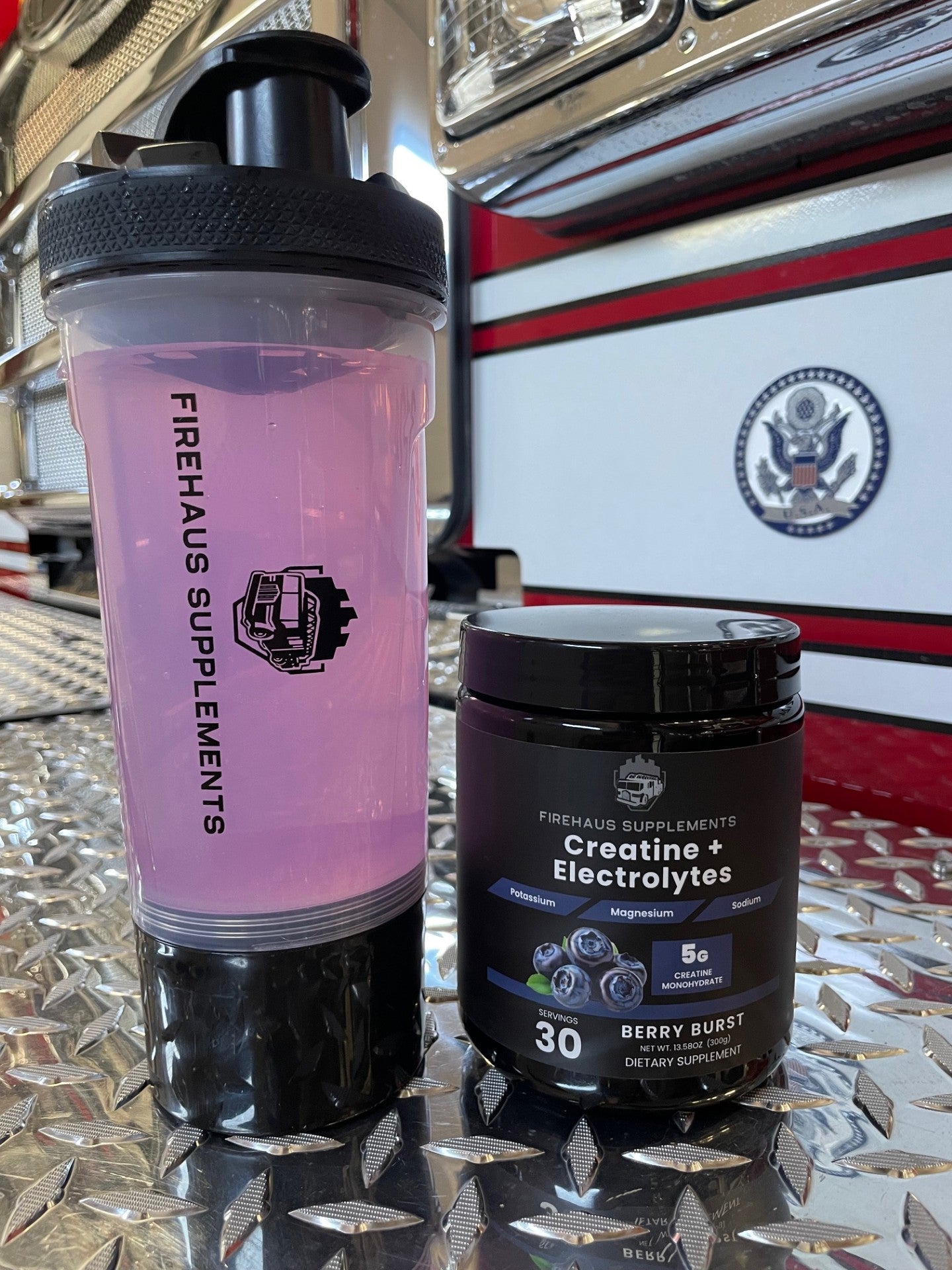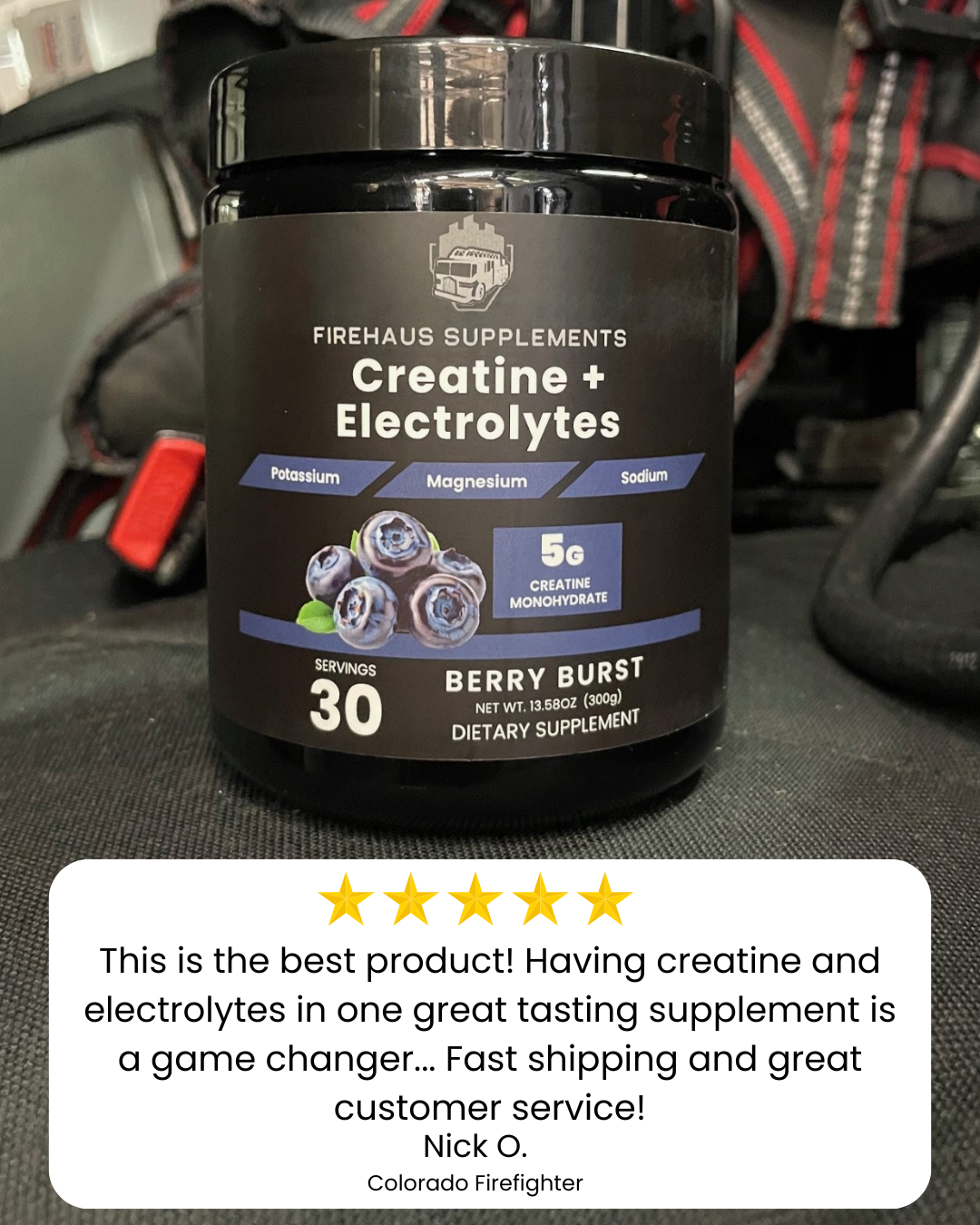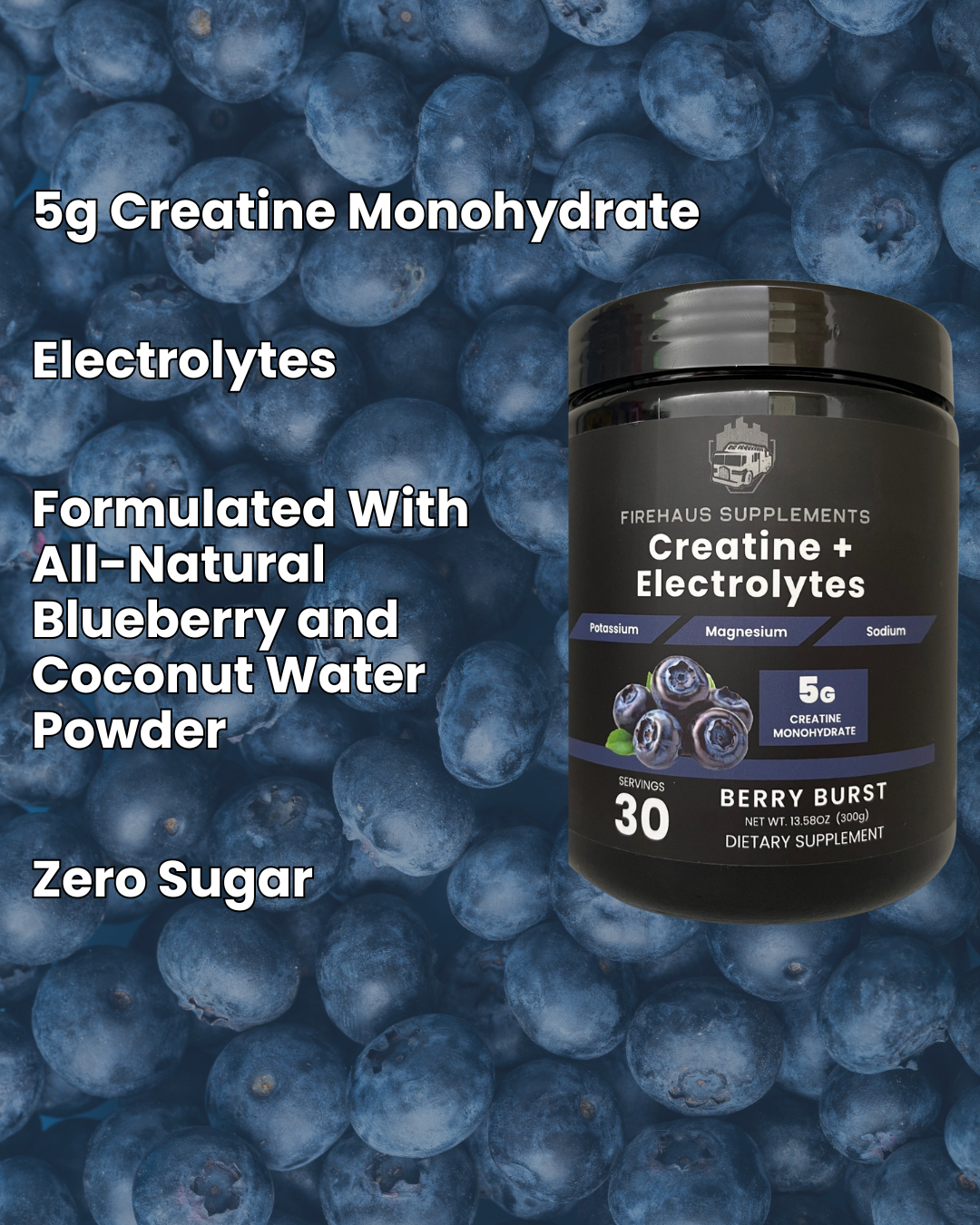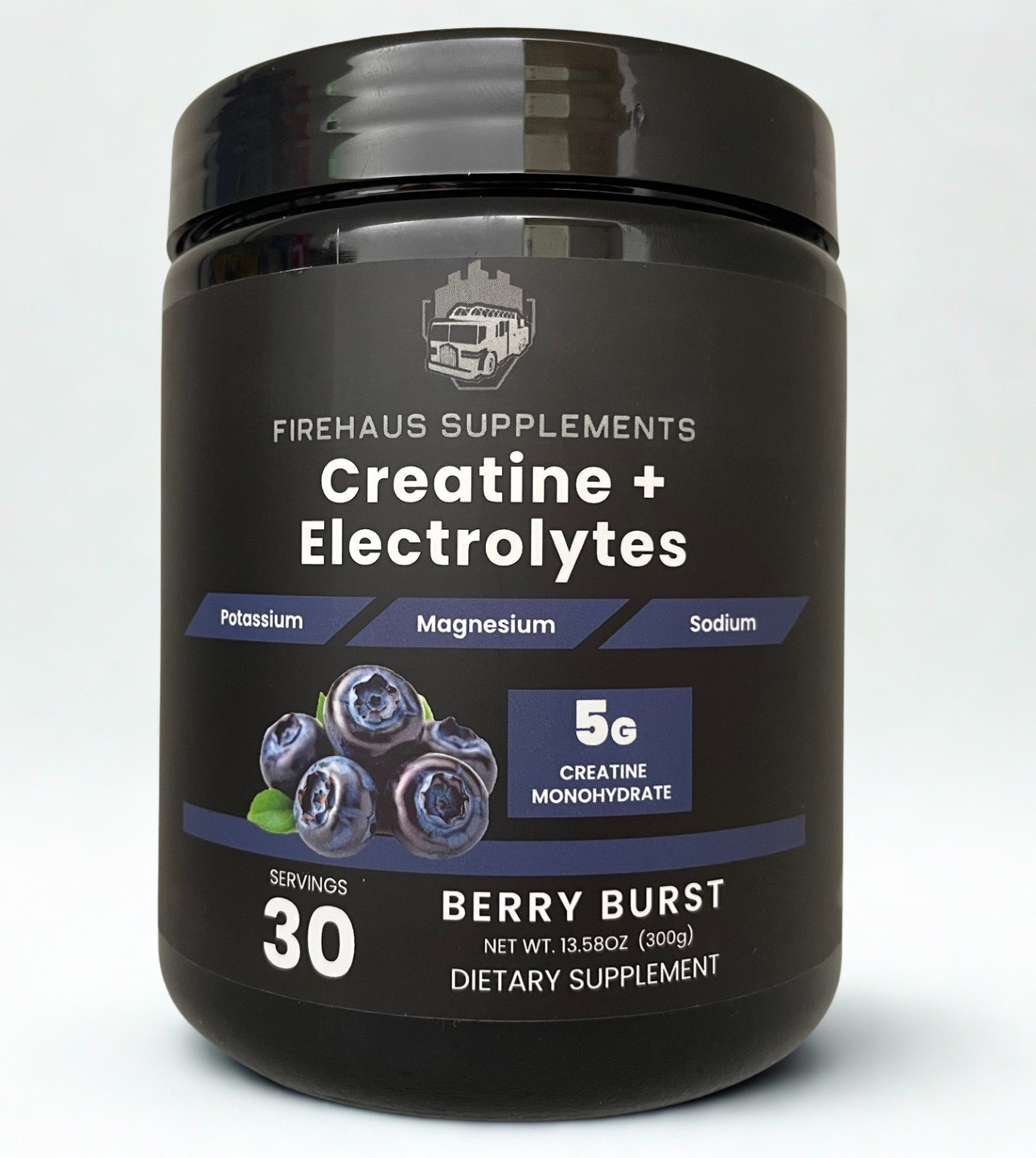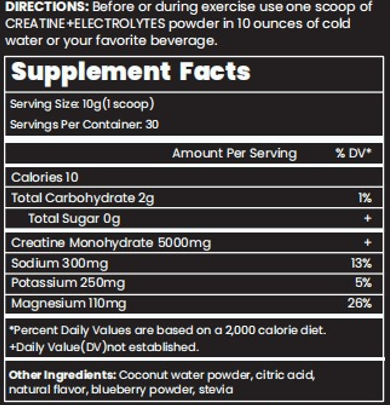Do Firefighters Need to Take Creatine? The Science Behind Strength on the Job
Share
Firefighting is one of the most physically and cognitively demanding jobs out there: heavy gear, extreme heat, repeated lifts, stair climbs while carrying tools, and split-second decision making under stress. That’s why many first responders look for safe ways to improve strength, power, recovery, and mental sharpness — and creatine often comes up as the answer. Below we break down the science in straightforward terms so you can decide whether creatine belongs in your kit.
What is creatine and how does it help performance?
Creatine is a naturally occurring compound stored mostly in skeletal muscle as phosphocreatine. During short, intense efforts (think: lifting a downed victim, hoisting a hose, or an all-out stair climb), phosphocreatine helps regenerate ATP — the immediate energy currency muscles use. Supplementing with creatine increases muscle creatine stores, which improves the ability to produce force and power during repeated high-intensity efforts. Multiple meta-analyses and reviews report consistent gains in strength, power, sprint performance, and training adaptations when creatine is used alongside resistance or high-intensity training. (PMC)
Why firefighters should take creatine
If your job requires repeated bursts of maximal or near-maximal effort, creatine can help you do those efforts better and recover faster between them. For firefighters specifically, several reviews and emerging studies highlight real occupational improvements when creatine is added to a training or supplement program tailored to the unique demands of the job. A recent narrative review focused on tactical athletes and firefighters concluded creatine monohydrate offers benefits across physical performance, recovery, and even cognitive support — all relevant to on-the-job readiness. (MDPI)
Benefits of creatine for firefighters — what the research shows
Here are the practical benefits you’re most likely to see:
- Increased strength & power: Creatine reliably improves maximal strength and power output, which helps with heavy lifts, forcible entry, and other high-force tasks. (PMC)
- Better high-intensity repeat ability: Tasks that require repeated sprints, carries, or stair climbs are easier when phosphocreatine stores are optimized. (PMC)
- Faster recovery between efforts: Creatine can speed recovery of muscle function after intense bouts, meaning shorter rest needed between rounds of exertion. (BioMed Central)
- Potential cognitive and resilience benefits: Emerging evidence suggests creatine may help maintain cognitive processing, especially during sleep deprivation or prolonged stress — both common in firefighting. While more firefighter-specific research is needed, lab studies show improved processing speed and memory in sleep-deprived conditions after creatine. (Nature)
- Safe, well-studied, and inexpensive: Creatine monohydrate is the most researched form and has an excellent safety profile in healthy adults at recommended doses. (BioMed Central)
These are the main benefits of creatine for firefighters that current literature supports. For occupational settings, small intervention studies and reviews suggest meaningful improvements in real-world firefighter tasks when creatine is included with proper training and nutrition. (PMC)
How much creatine firefighters should take
Two common strategies work:
- Loading + maintenance: ~0.3 g/kg/day (≈20–25 g/day for many adults) split into 4 doses for 3–5 days (the “loading” phase), then 3–5 g/day as a maintenance dose.
- No loading (steady dose): 3–5 g/day every day — this takes longer to saturate muscle stores (≈3–4 weeks) but is simpler and has the same long-term effect.
Both approaches are endorsed in the sports nutrition literature; many athletes and tactical professionals prefer the simple 3–5 g/day maintenance approach because it minimizes stomach upset and fits easily into daily routines. So — how much creatine firefighters should take? Aim for 3–5 grams daily as a practical, evidence-based guideline, or use a short loading phase if you want faster saturation. (PMC)
What type of creatine should firefighters take?
Short answer: creatine monohydrate.
Creatine monohydrate (CrM) is the gold standard — it’s the best studied, most cost-effective, and has the strongest evidence for both efficacy and safety. Many alternative forms are marketed (e.g., creatine hydrochloride, buffered creatine), but none have consistently shown superior results to monohydrate in well-designed studies. (PMC)
Safety and practical tips
- Kidney safety: Myths persist about kidney damage, but research in healthy individuals shows no harmful effects at standard doses (3–5 g/day). If you have preexisting kidney disease or other significant medical concerns, consult your physician before starting. (BioMed Central)
- Hydration & weight: Creatine can cause a small increase in water retention inside muscles (not harmful), which may appear as slight weight gain. Maintain good hydration practices on shift.
- Timing: Timing is flexible; consistency is more important than exact timing. Many firefighters take creatine with a post-workout shake or with a meal to improve uptake. (Healthline)
- Stacking: Creatine pairs well with resistance training and adequate protein intake — don’t expect gains without a training program that targets strength and power. One firefighter study used creatine alongside protein/carbohydrate strategies and observed improved occupational performance outcomes. (PMC)
Bottom line — should firefighters take creatine?
For most healthy firefighters who perform high-intensity work and want to improve strength, power, and recovery, creatine monohydrate is a safe, inexpensive, and effective option backed by decades of research. If your goals include better performance on job-specific tasks, improved repeat sprint ability, and possible cognitive resilience during sleep deprivation, creatine is worth considering as part of a broader training and nutrition plan. Always check with medical staff or a physician if you have preexisting medical conditions.
Looking for a Creatine Supplement Made for Firefighters?
If you want a creatine product designed with the fire service in mind, FireHaus Supplements’ Creatine + Electrolytes is just what you need. Each serving delivers:
- 5 grams of creatine monohydrate — the gold standard, proven to enhance strength, power, and recovery.
- Essential electrolytes — to support hydration and muscle function during hot, high-intensity work.
- Naturally sweetened with coconut water powder and blueberry powder — refreshing, functional, and with zero sugar.
This combination makes it easier than ever to fuel both performance and hydration — exactly what firefighters need on and off shift.





